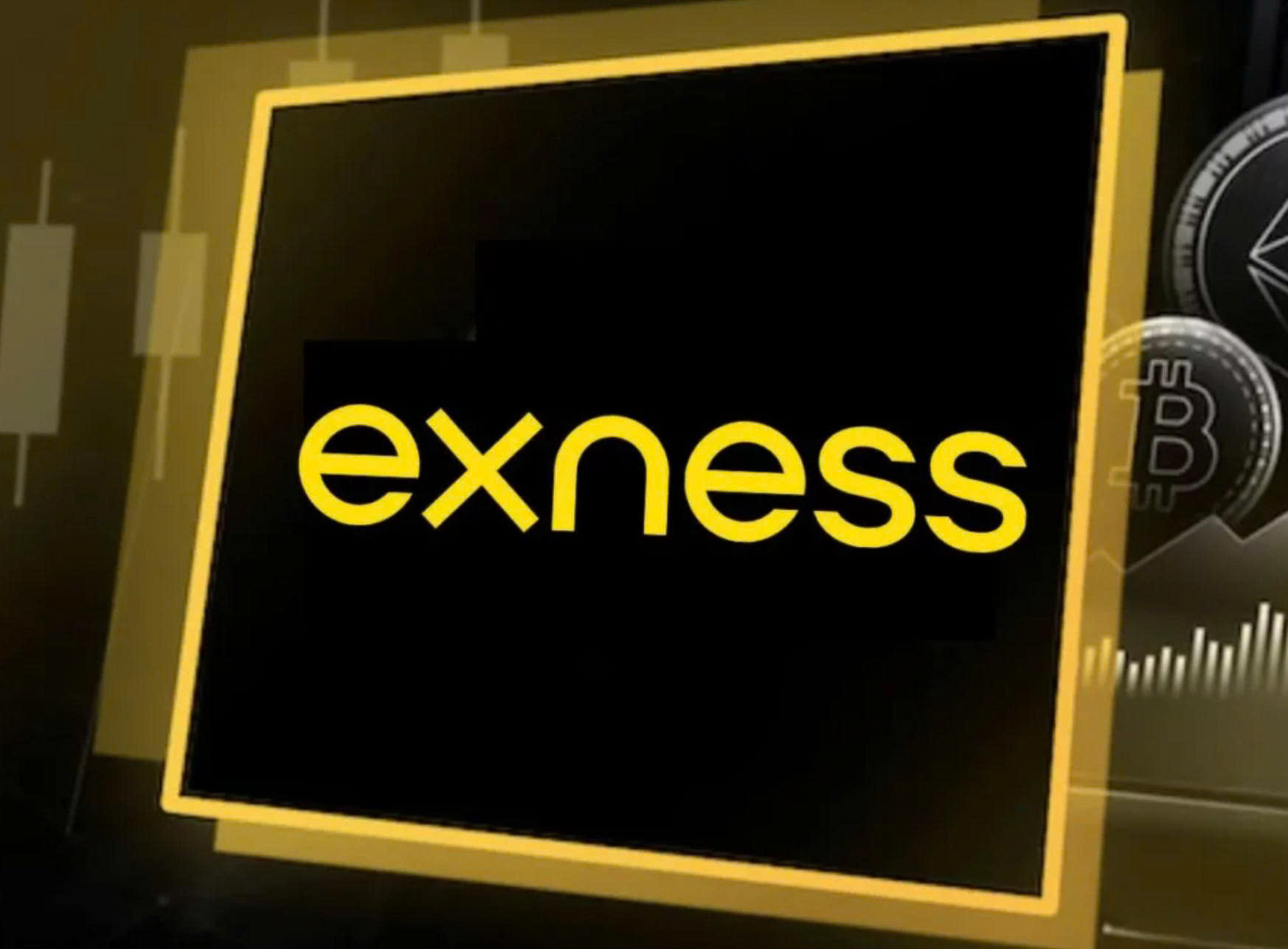
8 minute read
Exness vs Tickmill: Which Forex Broker Should You Choose in 2025?
from Exness, Tickmill
When it comes to forex trading, picking the right broker can make or break your success. Exness vs Tickmill are two heavyweights in the industry, each with its own strengths and quirks. So, which one’s better for you? In this article, we’ll dive straight into a head-to-head comparison of Exness vs Tickmill, covering everything from fees and platforms to regulation and trading conditions. By the end, you’ll have a clear picture of which broker suits your trading style and goals. Let’s get started!

✅ Trade with Exness now: Open An Account or Visit Brokers 👈
Why Compare Exness vs Tickmill?
Both Exness and Tickmill are well-regarded forex and CFD brokers, offering competitive services to traders worldwide. Exness, founded in 2008, is known for its low fees, flexible account types, and extensive range of instruments. Tickmill, established in 2014, has quickly risen to fame with its ultra-tight spreads and fast execution, especially for scalpers. But how do they stack up against each other? Let’s break it down by key factors.
Regulation and Safety: Who’s Got Your Back?
Trust is everything in forex trading. You want a broker that’s regulated by reputable authorities and keeps your funds secure.
Exness is a veteran in the game, regulated by multiple authorities, including the Financial Conduct Authority (FCA) in the UK, Cyprus Securities and Exchange Commission (CySEC), and Financial Services Commission (FSC) in Mauritius, among others. It offers negative balance protection, meaning you can’t lose more than your deposit, and client funds are held in segregated accounts. Exness also participates in the Financial Commission, which provides up to €20,000 in compensation per claim. This makes Exness a solid choice for safety-conscious traders.
Tickmill, while newer, is no slouch. It’s regulated by the FCA, CySEC, Financial Sector Conduct Authority (FSCA) in South Africa, and the Seychelles Financial Services Authority (FSA). Like Exness, it offers negative balance protection and segregated accounts. Tickmill is also part of the Financial Services Compensation Scheme (FSCS) in the UK, adding an extra layer of security for UK traders. However, Exness edges out slightly with its broader regulatory coverage across more jurisdictions.
Verdict: Both brokers are highly secure, but Exness’s wider regulatory net gives it a slight advantage for those prioritizing trust.
Trading Platforms: Which One Feels Right?
Your trading platform is your gateway to the markets, so it needs to be reliable, user-friendly, and packed with tools.
Exness offers a robust lineup, including MetaTrader 4 (MT4), MetaTrader 5 (MT5), its proprietary Exness Terminal, and a mobile app (Exness Trade). It also supports social trading, which is great for beginners who want to copy experienced traders. The platforms are intuitive, with advanced charting tools and fast execution, catering to both newbies and pros. The Exness Terminal, in particular, is a standout for its sleek interface and mobile accessibility.
Tickmill sticks to the classics: MT4, MT5, and its WebTrader platform. It also offers a mobile app for on-the-go trading. Tickmill’s platforms are highly customizable, with tools like Capitalise AI for code-free algorithmic trading and Acuity Trading Tool for actionable signals. These features are a big win for advanced traders, especially those into automation. However, Tickmill lacks a proprietary platform, which limits its versatility compared to Exness.
Verdict: Exness wins for its diverse platform options, including social trading and a proprietary app. Tickmill is better for traders who love MT4’s customization and algorithmic tools.

✅ Trade with Exness now: Open An Account or Visit Brokers 👈
Fees and Spreads: Where’s the Best Value?
Trading costs can eat into your profits, so let’s see how these brokers compare on spreads, commissions, and fees.
Exness is known for its low-cost structure. Spreads start at 0.3 pips on standard accounts, with no commissions on Standard and Standard Cent accounts. For professional accounts like Raw Spread and Zero, spreads can drop to 0.0 pips, but you’ll pay a commission (up to $3.50 per lot per side for Zero accounts). Exness also offers swap-free trading on all forex majors and crypto CFDs, which is a huge plus for long-term traders. There are no deposit or withdrawal fees, and withdrawals are often instant for verified users.
Tickmill is a favorite among scalpers for its ultra-low spreads, starting at 0.0 pips on Pro and VIP accounts with a commission of $2 per lot per side. Classic accounts have higher spreads (from 1.6 pips) but no commissions. Tickmill’s ECN model ensures tight spreads by connecting you to deep liquidity pools, and it also offers swap-free Islamic accounts. Like Exness, Tickmill doesn’t charge deposit or withdrawal fees, and withdrawals are processed within a day.
Verdict: Tickmill has the edge for forex traders with tighter spreads on Pro accounts, but Exness is better for gold trading and offers lower overall costs for non-forex instruments.
Account Types: Flexibility for Every Trader
Your account type should match your trading style and budget. Let’s see what each broker offers.
Exness provides five account types: Standard, Standard Cent, Pro, Raw Spread, and Zero. The Standard Cent account is perfect for beginners with small budgets, as it allows trading in cents, reducing risk. Standard accounts have no minimum deposit (though payment processors may impose one), while professional accounts require $500. Exness’s flexibility makes it accessible to traders of all levels.
Tickmill offers three main accounts: Classic, Pro, and VIP. The Classic account is commission-free but has higher spreads, while Pro and VIP accounts offer lower spreads with commissions. There’s also a Sharia-compliant Islamic account, which is a big draw for Muslim traders. The minimum deposit is $100 for Classic and Pro accounts, but VIP accounts require a higher balance. Tickmill’s accounts are straightforward but less varied than Exness’s.
Verdict: Exness takes the lead with more account types, especially the Standard Cent for beginners. Tickmill’s Islamic account is a unique perk, but its options are less diverse.
Trading Instruments: Diversify Your Portfolio
A wide range of instruments lets you diversify and explore new markets.
Exness shines here, offering over 100 forex pairs, plus CFDs on stocks, indices, commodities, metals, energies, and cryptocurrencies (including multiple Bitcoin-fiat crosses). This extensive selection makes Exness ideal for traders who want to branch out beyond forex.
Tickmill supports around 62 forex pairs, along with CFDs on indices, commodities, crypto, and bonds. While its bond trading is a niche advantage, Tickmill’s overall instrument range is narrower than Exness’s, especially for crypto traders.
Verdict: Exness wins for its broader range of instruments, particularly for crypto and stock CFDs. Tickmill’s bond offering is a plus but doesn’t match Exness’s variety.
Deposits and Withdrawals: How Easy Is It to Move Your Money?
Fast, cost-free transactions are a must for any trader.
Exness has no minimum deposit for Standard accounts (though payment processors may set one) and requires $500 for professional accounts. It supports a wide range of payment methods, including cards, e-wallets, and crypto, with instant withdrawals for verified users. Exness also supports deposits in multiple currencies, reducing conversion fees.
Tickmill requires a $100 minimum deposit for Classic and Pro accounts. It offers various payment methods, including bank transfers, cards, e-wallets, and even Bitcoin. Withdrawals are processed within one day, and there are no fees. However, Exness’s instant withdrawals give it a slight edge.
Verdict: Exness is the winner for its lower minimum deposit and instant withdrawals, though Tickmill’s Bitcoin option is a nice touch.
Customer Support and Education: Who Helps You Grow?
Good support and resources can elevate your trading game.
Exness provides 24/7 customer support via live chat, email, and phone, with multilingual options. Its educational resources include tutorials, webinars, and market analysis, making it beginner-friendly.
Tickmill offers 24/5 support in multiple languages through phone, email, and live chat. Its educational offerings are robust, with webinars, e-books, video tutorials, and tools like Acuity Trading for market insights. Tickmill also provides a demo account for practice.
Verdict: Exness has a slight edge with 24/7 support, but Tickmill’s educational tools are top-notch for traders looking to learn.
Who Should Choose Exness?
Exness is ideal if you:
Want a wide range of trading instruments, especially crypto and stocks.
Prefer flexible account types, including a low-risk Standard Cent account.
Value instant withdrawals and no minimum deposit.
Need 24/7 customer support and social trading options.
Who Should Choose Tickmill?
Tickmill is perfect for you if:
You’re a scalper or high-frequency trader who prioritizes ultra-low spreads.
You want access to advanced tools like Capitalise AI or Acuity Trading.
You prefer a Sharia-compliant Islamic account.
You value fast execution and ECN trading.
Final Thoughts: Exness or Tickmill in 2025?
Both Exness and Tickmill are excellent brokers, but your choice depends on your priorities. Exness stands out for its versatility, low fees, and extensive instrument range, making it great for beginners and diversified traders. Tickmill excels for scalpers and forex-focused traders who want the tightest spreads and advanced tools.
If you’re still on the fence, try their demo accounts to test the waters. Ultimately, Exness gets a slight edge for its flexibility and broader offerings, but Tickmill’s low-cost structure is hard to beat for forex purists.
✅ Trade with Exness now: Open An Account or Visit Brokers 👈
Read more:

